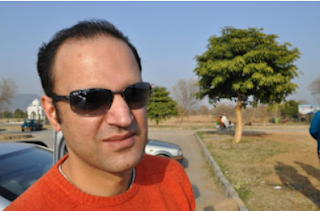Ali Jassim
In any crisis that threatens the established social or political order, the media must present a factually accurate and objective account of the evolving situation. This influences public opinion and the interpretation of events. It is also a powerful tool to educate and guide people.
Third-world countries like Pakistan always seem to be in crisis. Booming populations, low levels of literacy, limited resources, and the rising cost of living means that the road to progress is not at par with the expectations of the people. Therefore frustration and deprivation are prevalent- a situation which can and often is exploited by vested interests.
This may give rise to agitation and even violence. In the absence of education, the media becomes even more important since it shapes public opinion and may serve vested interests thereby compounding the crisis. This lends itself to a vicious circle, which promotes social and political instability.
Newspapers these days do not give much emphasis on projecting all aspects of a story. The media tends to stand at variance with the collective when journalistic standards fall and valued norms are breached the good. Therefore the impression and the reality that reporters deliberately twist news and sensationalize stories to make it more spicy does not come as too much of a surprise.
Alarmingly, this particular practice is even demanded of reporters from newspaper editors in a certain section of the press. Another huge failing of media in Pakistan is the dependence on foreign press agencies for news, articles, and editorials. No newspaper in Pakistan can boast about having correspondence during world-changing events such as the sensational Arab Spring. Hence, media in Pakistan depended upon foreign news agencies for news.
Outstandingly, these very news agencies have been under fire from their critics and analysts as being too one-sided in their reporting of events. On the other hand, the media has also published foreign stories coming out of the propaganda machine, which lends itself to the opinion formed based on inaccurate and sometimes false information.
This is evident from the completely divergent stance of the media and the government following the war in Afghanistan. This freedom to publish unverified and misleading stories has often resulted in economic, social, and political chaos.
Furthermore, for comments on articles, Pakistani newspapers depend on staff writers. Either they do not have adequate resources towards hiring experts and specialists in various fields or they are not willing to allocate such resources. This further aggravates the problem since staff writers are overworked and are prone to writing without ascertaining all the angles and sorting out all the facts.
The print and electronic media have also a part to play in aggravating ethnic and political differences. This is evident in the ongoing ethnic and linguistic violence in Karachi. Due to the linguistic differences amongst Pakistan, some politicians further their interests with their separatist ideologies and preaching. Ironically, these politicians enjoy little or no support.
The media in Pakistan is responsible for increasing their stature, which has propelled a section of the population to accept the ideology of these elements. Patriotism, integrity, and national security demands that newspapers should not be going out of their way to project anti-nationalist sentiments, views, and opinions. In multi-ethnic societies such as Pakistan, such behavior has serious and long-term repercussions often manifesting itself as deep divisions along the ethnic, racial, religious, and sectarian divide.
Often the media itself is fostering disharmony and agitation from the very onset of a new government. Organs of various political parties in the mass communication industry project views, news, and analysis, which is concocted giving a completely misleading representation of the truth during electioneering.
This means that they absolve politicians of responsibility following election defeats.
It is an established norm to reject election results as massive rigging undertaken to prevent them from coming into power.
Unfortunately, the media perpetuates the crisis by lending credence to these anti-social and sensationalist remarks, which naturally destabilize the government even before it has taken any shape.
Another phenomenon that is gripping Pakistani newspapers is news based on the utterances of leaders. Newspapers may sometimes take the form of gossip tabloids acting as a battleground for mud-slinging war among opposing political parties.
Objective, investigative reporting is sorely missing from the scene.
The way to increase circulation and enhance public education is by encouraging investigative reporting of important social, economic, and national security issues.
Greater emphasis should be placed on providing full and objective coverage of events, the performance of the government at various levels, gender issues, the respect of women, and problems afflicting rural Pakistan.
For this, journalists need an orientation on national interests, ethics, and objectives. One way of achieving this would be through regular workshops, seminars, symposia, and courses on standards of reporting, code of ethics, objectivity, and issues pertaining to national security.
More importantly, the media in Pakistan needs to minimize dependence on foreign agencies for their news. Misguided public opinion puts tremendous pressure on the government and often detracts from the core issue that needs to be tackled.
The foreign media has done tremendous damage to Pakistan. It has deliberated tarnished the image of Pakistan, paving the way for uncertainty and instability, which are the natural foes towards progress and investment. The unprecedented media war against Pakistan following Operation Geronimo is a point of contention in this regard.
In an increasingly global world, countries, which have not aligned their press to their vital interests, will always be isolated and marginalized. After all, nobody is willing to take the risk of investing in a country where political and hence economic stability cannot be maintained. Therefore, objective and ethical media is instrumental in shaping a prosperous, progressive, and tolerant nation and in strengthening the moral fiber of society.
Ali Jassim has been associated with Al-Bab for 28 years. He holds an MBA (Merit) from the University of Bradford.



No comments:
Post a Comment